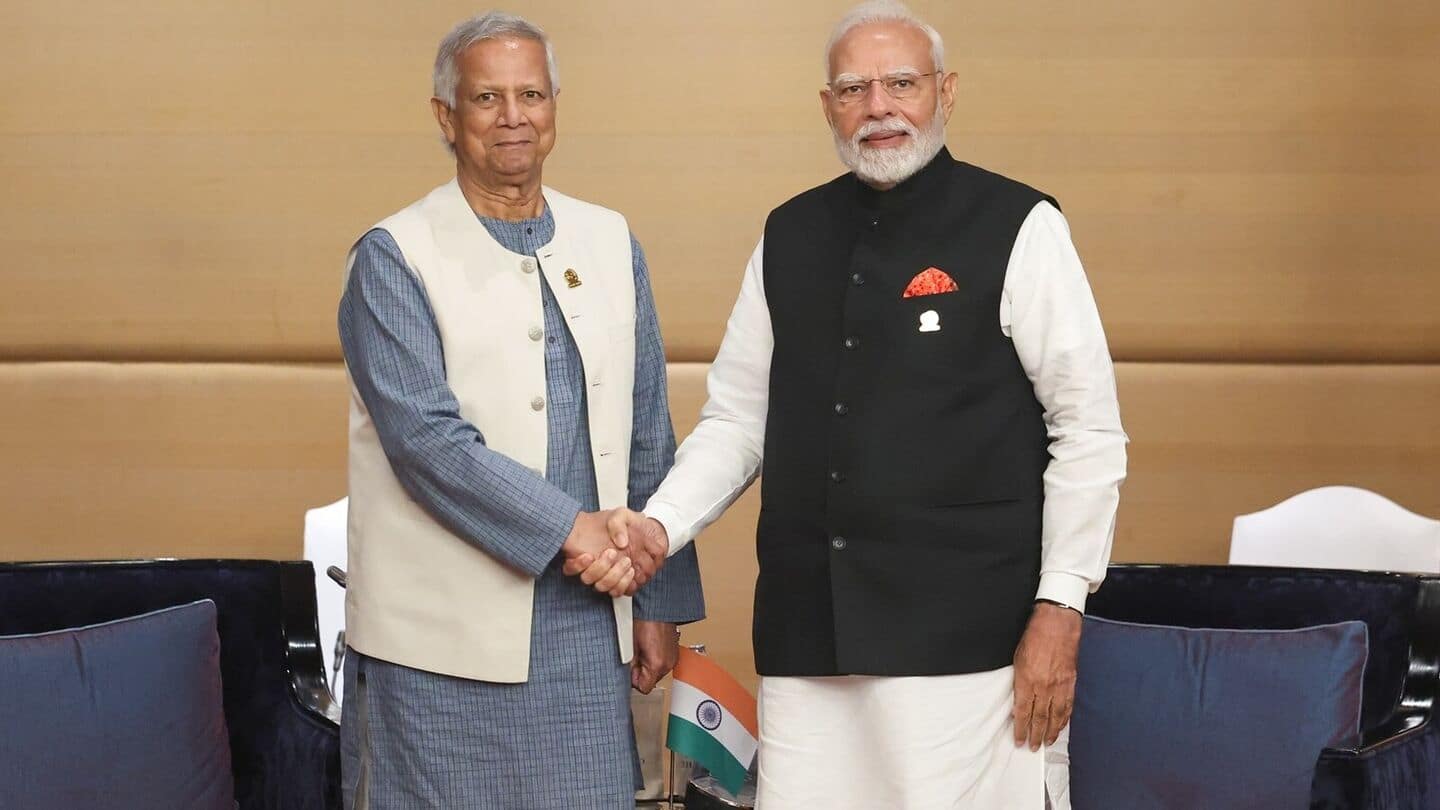
Modi meets Bangladesh's Muhammad Yunus amid Northeast remark row
What's the story
Indian Prime Minister Narendra Modi met Muhammad Yunus, chief advisor of Bangladesh's interim government, on the sidelines of the BIMSTEC Summit on Friday.
This is their first meeting since Yunus came to power.
The meeting is significant considering Dhaka's growing proximity to Beijing, a development that New Delhi has been watching closely.
It also comes amid tensions over Yunus's remarks on the Northeast, which, being "landlocked," could position Bangladesh as the main gateway for maritime access to the Southeast region.
Diplomatic strain
Yunus's comments on India's northeastern states spark tensions
Before this meeting, Dhaka had sought a bilateral meeting on the sidelines of the BIMSTEC Summit to discuss their differences.
However, it wasn't on Modi's Thailand schedule.
Apart from the remarks on the Northeast region, India and Bangladesh also saw tensions in ties due to differences over the alleged targeting of Hindu minorities in Bangladesh and India's decision to grant asylum to Sheikh Hasina.
Meeting request
Bangladesh's request for bilateral meeting not included in Modi's schedule
Dhaka had sought a bilateral meet on the sidelines of BIMSTEC Summit to discuss their differences. However, it wasn't on Modi's Thailand schedule.
Despite tensions, India and Bangladesh have important issues to discuss, including India's concerns over attacks on minorities in Bangladesh and the deteriorating law and order situation there.
Extradition request
Bangladesh's military ties with Pakistan raise concerns
Another bone of contention in India-Bangladesh ties is the growing closeness of the Bangladesh military with Pakistan's armed forces and its Inter-Services Intelligence (ISI).
In September, Bangladesh officially invited Modi for a bilateral meeting with Yunus on the sidelines of the UN General Assembly in New York, but Modi didn't respond at the time.
BIMSTEC
What is BIMSTEC
BIMSTEC or the Bay of Bengal Initiative for Multi-Sectoral Technical and Economic Cooperation, is an international organization composed of seven South Asian and Southeast Asian nations.
These nations collectively employ 1.73 billion individuals and have a combined gross domestic product of US$5.2 trillion (2023).
Countries that are dependent on the Bay of Bengal include India, Bangladesh, Bhutan, Myanmar, Nepal, Sri Lanka, and Thailand, which are members of the BIMSTEC alliance.